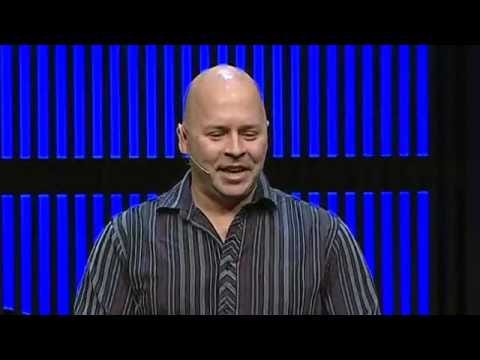There's a lot to do to get out of your office and into the real uncertainty of innovation. That is how to test the USAF's 'open door' policy by walking into a few. Note: The goal of these messages is never for you to read or consume all of the content at once. This is more an all-you-can-eat buffet line, with little nibbles here and there filling your plate - except with this one, it is ok to take a doggy bag.
I'll encourage other coaches to drop links into the comments on this message about how to find doors. But a good rule of thumb is that I probably walk through 30 doors to find 5 people who are really good. So - here is a few items off my list of 'top 100 innovation concepts to practice' when it comes to initiating change. (when possible I'll also try to give some remarks as to the innovation genome flavors - though this is clearly a subjective assessment)
Blue to Yellow: How to start a movement: Derek Sivers
Red to Green: Encountering resistance: (A framework for change, RSA)
Blue to Yellow: What really motivates people to change? - Dan Pink, Drive
You’re looking for how and where to move the hearts and minds of people through some experiences you can show them. Some of your attempts will fail. If your hunch about the problems are good, and if your opportunity space is real, some of them will work. Even If you get 100 failures, we’ve learned. This 30 days is about accelerating the learning cycle. Don’t do stuff you know. Do the stuff where people have to change and where you have the potential to learn.
Alberto Savoia's concept of 'Pretotyping' and his laws for entrepreneurial success are good to keep in mind. We will refine our abilities later in the course and get serious about experimentation, but right now, the 'hypothesis funciton' is not quite right. We're still trying to isolate the assumption! https://www.pretotyping.org/methodology.html - so in this case the form of prototype is really just to help refine what ASSUMPTIONS did your team accidentally make all week because you all share one (miliitary view) of the problem!?
Pep talk for my non-Yellows:
Once (or maybe even before!) you're convinced that change is needed, you'll want something to have with you to encourage people to discuss potential changes with you. However, you probably don't want to waste a lot of people's time. This is where you can steal an idea from Christina Wallace's 'zero date.' As Jeff says about gaining buy-in. No "menage-a-sponsor" - that is, you will ultimately want it to be clear that your work is supported and propelling one clear set of interests. However, if like a desperate teen, your team conforms to the whim of someone else and abandons your identity and preferences to be whatever your preferred sponsor wants, it becomes clear that you're not adding a lot to the relationship! So a big part of 'identifying the problem' is establishing the team's identity (hence the team charter and slogan!) - As you round into the final 1/3 of the course, you may decide to abandon the fun/frivolous team identity for one that is tied to your project (potential read ahead: Every Project Needs A Brand)
Now, this TED talk might be something you probably want to watch *with* your significant other so that they know this is a school assignment! But it's not the literal advice about online dating that is at stake. It's about how to leverage the digital world to make meaningful connections MORE QUICKLY. Ask an MBA (blue) about how to date and what do you get?
The Zero Date
Now, what I want you to consider is that your ability to learn quickly WILL have to do with the kind of chemistry you can create. And while the social media sphere, Twitter, LinkedIn etc - rapidly broaden your pool of potential people to learn from, you need a strategy for making contact! To be fair, most of the ones I've seen are pretty atrocious. But what's also clear to me, is that if you want to learn about how to do important work, it can be very helpful (if a little audacious) to ask for help from the people you are trying to emulate. *Here's a true story. In 2019 after I came across this Ted talk, I did message with Christina Wallace a few times over e-mail because I thought this strategy was brilliant. I was using online dating at the time and I wanted to say thanks for sharing! We discussed her book New to Big. It didn't go much further than that - but it was nice to even get a response! As I had to look this up again to write this, I was pleased to see she also has a new book coming out in 2023 "The Portfolio Life"!
Riff on the zero date for refining your HQT this week and let us know how it goes! Bonus, you'll be warming up potential sponsors!
Here are a few of my favorite and inspiring people under 40.
(of course there are other more official lists of 40 under 40... so YMMV)
Sarah Wolek - UMD Intentional Life Lab, UMD faculty, Formerly of OMB.
Darshan Karwat - ASU re:Engineered, National Academies "Young Voices"
Daniel Hulter - USAF CyberWorks, founder Agitare
Jackelyn O'Connor - Penn State, Fellow of ASME at age 38!!
(Who are the other young voices shaping the future??) - how does your team get these people and those like them into your discussions??


